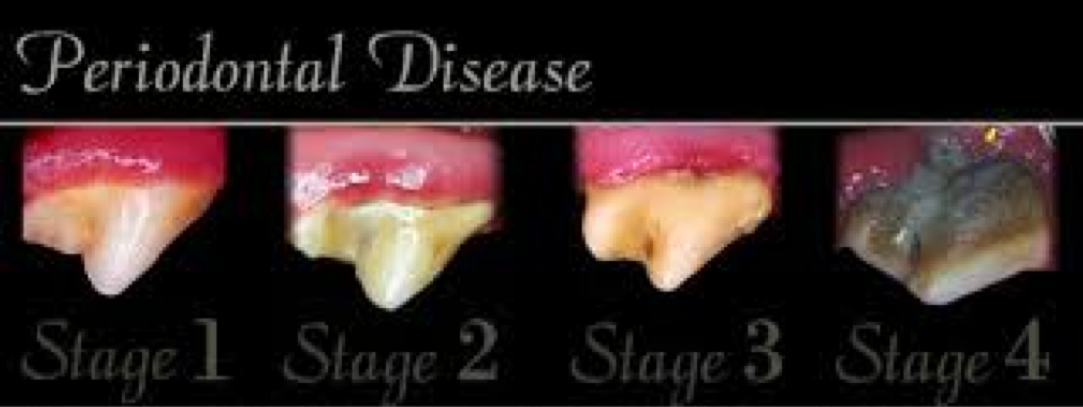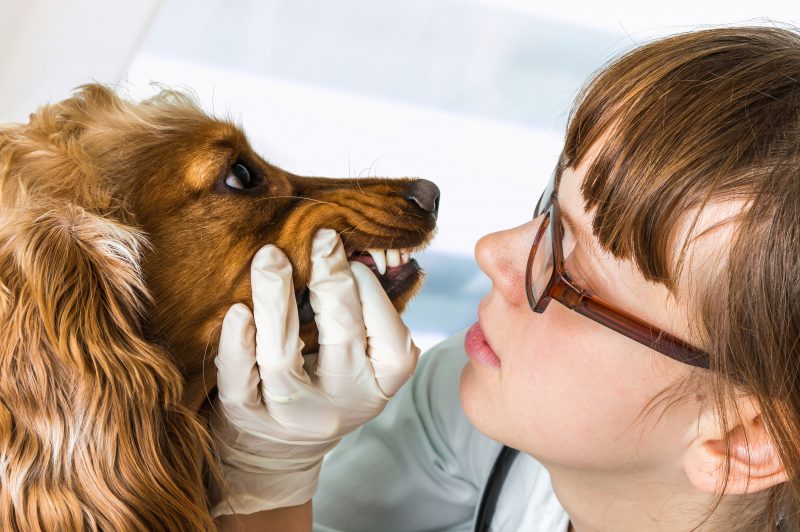Terms you should know:
Dental Plaque
Soft deposits that form on the surface of teeth. Plaque contains many types of bacteria and can form within 2 hours after eating.
Dental Calculus
Hardened calcified plaque that can form after only 2 days. This is often called tartar. Calculus sticks firmly to the teeth and can be removed sometimes through chewing or more thoroughly through a dental cleaning at our Veterinary Hospital.
Periodontal Disease
Sometimes called as Gum Disease, is an infection and or inflammation of tissues that surround the teeth. It begins with an inflammation of the gums (gingivitis) and progresses to involve the tissues that attach the gums to the teeth and eventually eats away the supporting bone. Left untreated the tooth will slowly loosen and eventually fall out. During this process, the pet is exposed to a multitude of bacteria that are not only in the mouth but will have access to the blood supply of your pet. This opens the door to infections in many parts of the body including the heart.

Dental Plaque contains many different types of bacteria and some of these types of bacteria are associated with developing periodontal disease. The gums can often resist or limit the invasion of bacteria. It is thought that periodontal disease is more likely to develop with increased amounts of plaque which can vary per patient or the patient’s defence against bacteria is reduced in some way. History has proven that smaller dogs are more prone to periodontal disease. This may be attributed to bone density as well as the fact that many smaller dogs are less aggressive chewers.
How can I prevent plaque-associated gum disease?
Brushing is always best! We can help you find ways to make your pet enjoy and look forward to tooth brushing. You should brush your pet’s teeth daily but at the very least every other day.
Chewing is an excellent way to help keep your pet’s teeth clean, however, you must be cautious because aggressive chewers and real bones can actually break teeth. Broken teeth are very painful and will need to be extracted. There are assortments of Dental diets and dental chews that are quite safe. We can help you find what is best for your pet.
Water additives are also helpful. These were created to help decrease the bacteria within the mouth and therefore reduce the amount to calculus forming plaques. Products claiming dental protection should have a VOHC (Veterinary Oral Health Care) seal on the bag. This will ensure you are purchasing a product proven to work and not just a marketing gimmick.
Brushing is ALWAYS best but we understand that not every dog or cat will allow it so we do what we can at home and your Veterinarian will recommend Comprehensive Oral Health Dental Treatment (dental cleaning with radiographs) when needed.
Written by Darlene Cannon, RVT




